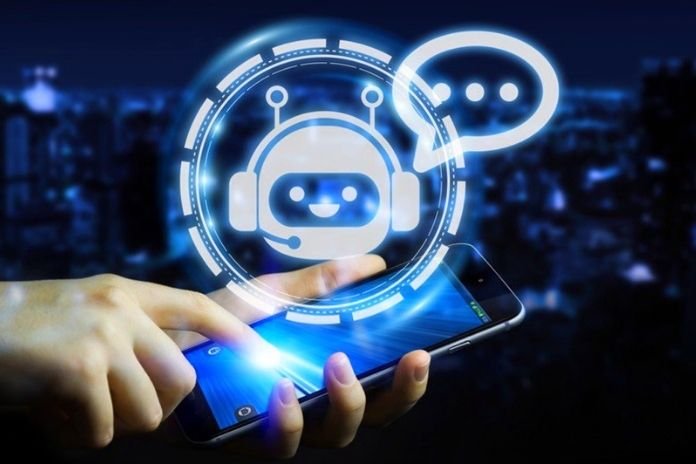How Artificial Intelligence AI Is Changing The Way We Communicate
You may not have realized it yet, but Artificial Intelligence AI is increasingly present in our daily lives. And it’s not a topic that refers only to those futuristic films, with technologies that even today seem impossible.
Artificial intelligence AI technologies are already part of daily human life, from the mobile spell checker to the stock market analysis that moves billions and billions of dollars. She is all around us, integrating activities, optimizing processes and ready to solve our problems. That’s why you need to know more about this potency.
Even though it is no wonder that this technology is one of the trends for 2021 and will grow even more in the coming years, in this way, modifying the way we provide medical care, follow distance classes, do business, purchases, but mainly in how we consume information and communicate with other people.
And it is in communication that she has shown herself to be quite assertive about the performance of services, facilitating the interaction between the company and the consumer and displaying relevant data and algorithms that allow the optimization of the experience. So, understand more about how AI is present and changing the way we communicate in our companies.
What Is Artificial Intelligence AI?
Artificial Intelligence AI is a set of various technologies that mimic the human ability linked to intelligence to perform tasks, which can interactively improve based on the information collected. This occurs through reasoning, perception of the environment and the ability to analyze for decision-making.
One of the concepts of Artificial Intelligence AI is to make systems able to abstract, create, deduce or even learn specific ideas. Thus, allowing this technology to facilitate day-to-day tasks, modernize processes, and achieve advances in research using a more agile and efficient artificial “brain”.
How Does Artificial Intelligence AI Work In Communication?
Remember when we said that AI is present in your daily life at the beginning of this text? And this occurs more intensely in communication. We list three practical examples to illustrate how this tool has expanded and has brought good results for organizations in touch.
- Have you accessed e-commerce recently? This site likely made a chatbot available in the corner of the page. This tool uses AI to understand consumer pain and seeks to provide quick and efficient answers;
- Opened the streaming platform and found a section with recommended movies and series based on other productions you’ve watched previously? It’s another example of AI, which analyzes information and creates recommendation mechanisms for you to spend more time following the service;
- And another technological trend that has grown a lot in recent years is intelligent assistants – present in smartphones but now gaining space as their equipment. These assistants are AI-based software to analyze information in large sets and offer a new user experience.
In other words, when we talk about communication and relationships with our audiences, it is essential to rely on the strength of AI. It allows companies to find patterns and meeting points with the consumer, as it will use organized data feeding algorithms and represent more learning. Google and Facebook have this tool, but your company can also bet on it to convert more.
How Does Omnichannel Service Work?
In addition, AI is also behind an intelligent platform that can contribute to your company’s success: we are talking about Omnichannel service. This tool is based on the simultaneous and interconnected use of the most varied communication channels in just one place to strengthen the relationship between your organization and the customer. In this way, you increase sales conversion and promote loyalty through intelligent service.
Want to understand more about how this works in practice? When we talk about channel centralization, your company will be able to serve your customers through WhatsApp, Messenger, Email, SMS, voice telephony, and Web Chat in just one tool. In addition, the interface needs to be developed based on the best usability practices so that you feel comfortable and know all the features of this tool.
An effective service needs to be 24 hours a day, seven days a week because the customer has no time and can look for your benefit, whether at dawn or on weekends and holidays. Thinking about it, the Omnichannel service can be automatic with the help of chatbots and artificial intelligence to assertively respond to the consumer’s desire. And this integration is an essential path to customer conversion and loyalty. The consumer wants to be well served and considers this in virtual purchase relationships. Through personalized service, it is possible to enhance results and allow agile and assertive connections regarding your client’s needs.
What Are The Advantages Of An Omnichannel Platform?
Now that you understand how Omnichannel service occurs in practice, how about learning the advantages of this platform? Are several. First, we are talking about a ready-made tool with easy integration and deployment. It won’t take much effort to implement it in your company. In addition, one of the benefits is that the platform can be integrated with CRM, PABX and ERP systems, that is, centralizing the most relevant information. In this way, with the integration of service channels, it is possible to have a complete history of customer service in a single timeline, regardless of the track.
It is no longer possible to plan your company’s communication focusing on customer service without considering the power of Artificial Intelligence. Technologies like this are spreading through the most diverse services, and their results compensate for the efforts to ally themselves with the most modern being offered in the market. And Native can be your partner in implementing Omnichannel service in your company.
Also Read: Seven Artificial Intelligence Technologies Presented By Google
Share this content:












Post Comment